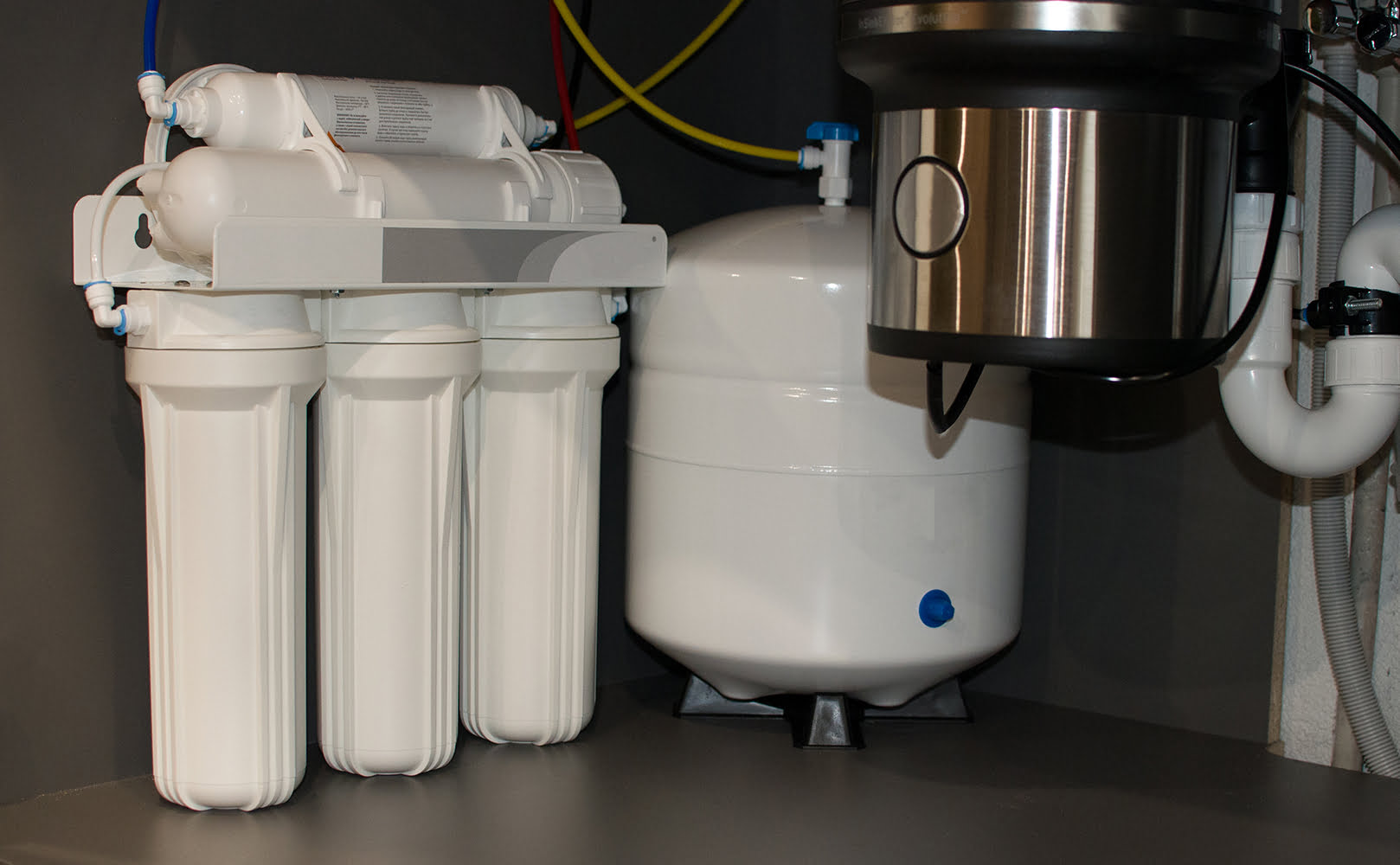The Side Effects of an RO UV Water Purifier – Know This!
Written by: Gene Fitzgerald // Last Updated: Jun 23, 2023
This page may contain affiliate links. If you buy a product or service through such a link we earn a commission at no extra cost to you. Learn more.
While an RO UV water purifier can greatly improve the quality of your drinking water, there are some points you need to consider before installing one in your home.
In particular, you should be aware of the side effects this combination of purification methods can have on your water, and their implications for your health…
Key Takeaways
- The side effects of using an RO UV water purifier are some wasted water, a slightly higher electricity bill, and a reduced concentration of minerals in your drinking water.
- Still, an RO UV water purifier can be a great addition to any household dealing with contaminated water.
Side Effects of RO UV Water Purifiers
Reverse osmosis water purifiers are among the most effective models on the market in terms of overall purification capabilities. When used in tandem with UV, they can easily remove most types of contaminants that the average person would be concerned about – including waterborne pathogens like cysts.
RO UV water purifiers are not without their downsides though. Here is what you need to consider:
Wastewater
Due to the way reverse osmosis works, some water ends up getting wasted. The amounts are not negligible either – for each gallon of filtered water, you may end up wasting several. This might not be ideal if you’re trying to be conservative about your water usage.
Good news: If you use a permeate or booster pump with your RO UV system, you can reduce wastewater by as much as 95%.
Electricity
A UV purifier requires a constant supply of electricity to operate. This can inflate your power bill noticeably, and it also means that the filter will stop working once its power goes out. In some cases, you may not even be aware that the filter has been off for some time.
Power Outage
That brings us to another important point: If you lose power, you’re going to lose your UV purification as well.
If the power outage is isolated to a specific part of the household, you may not notice that anything is wrong for some time. Until then, you’d be drinking water that has not been purified.
Side Effects of RO and UV-Treated Water
On top of the effects of the filters themselves, you should also consider how this type of filtration affects your water supply. Water that has been treated with UV and RO has some unique properties, which may not be ideal for you depending on your diet and lifestyle.
Reverse Osmosis Water Purification Causes Low Water pH
Reverse osmosis inherently reduces the pH level of filtered water. This makes it more acidic. While this is not a problem by default for the vast majority of people, some might find it unpleasant if they are already suffering from digestive problems or other related health conditions.
Low Mineral Water
Water usually contains various minerals in low quantities, and this can have a beneficial health effect. Some people even go out of their way to purchase mineral water for this specific reason.
Treating water with an RO filter removes most of those minerals, so if you already are low on minerals you might have to compensate by taking supplements or adjusting your diet in other ways. The WHO recommends remineralizing low-mineral water with calcium and magnesium ions.
Flat Taste
You might be used to your water having a certain taste to it. This is usually caused by the salts present in it. Water that’s been thoroughly filtered will naturally have a flatter taste, which can be unpleasant if you prefer its normal taste.
Warm Water
If water is left stagnant for too long, the UV light bulb might heat it up a bit and cause it to come out warm. This shouldn’t be a problem for households with active water use where people constantly use the faucets through the day, but it can be noticeable in smaller households with more limited usage.
Should You Stop Drinking RO UV Water?
If you’re concerned about your health, the good news is that RO UV filtered water is not dangerous in any way. It might be a bit flat if you’re used to the regular taste of unfiltered water, and you want to consider remineralization. But beyond that, you should not try to exclude RO UV filtered water from your diet.
How to Remineralize RO UV Water
If you insist on maintaining a high mineral content in your water, you should look into getting a remineralizer as an addition to your filtration chain. These units do exactly what their name implies – they introduce extra minerals into your water supply.
As long as you hook up the remineralizer after the RO membrane, it should be able to do its job fine.
All Pros and Cons of Using Reverse Osmosis + Ultraviolet Light Water Treatment
If you want a more detailed breakdown of the reasons you should and shouldn’t use RO and UV water filtration, here are some points to consider.
Pros
- Removes most types of harmful contaminants from your water
- Improves taste of contaminated feed water
- Requires no user interaction – water is constantly filtered
- Low ongoing maintenance requirements
- No chemicals are added to the water
Cons
- Reduces mineral content of water
- May make water taste flat
- Standard RO systems waste quite large amounts of water
If you have any questions about RO UV water purifier side effects please don’t hesitate to leave a comment below!
Information provided on BOS is for educational purposes only. The products and services we review may not be right for your individual circumstances.
We adhere to strict editorial guidelines. Rest assured, the opinions expressed have not been provided, reviewed, or otherwise endorsed by our partners – they are unbiased, independent, and the author’s alone. Our licensed experts fact-check all content for accuracy. It is accurate as of the date posted and to the best of our knowledge.



